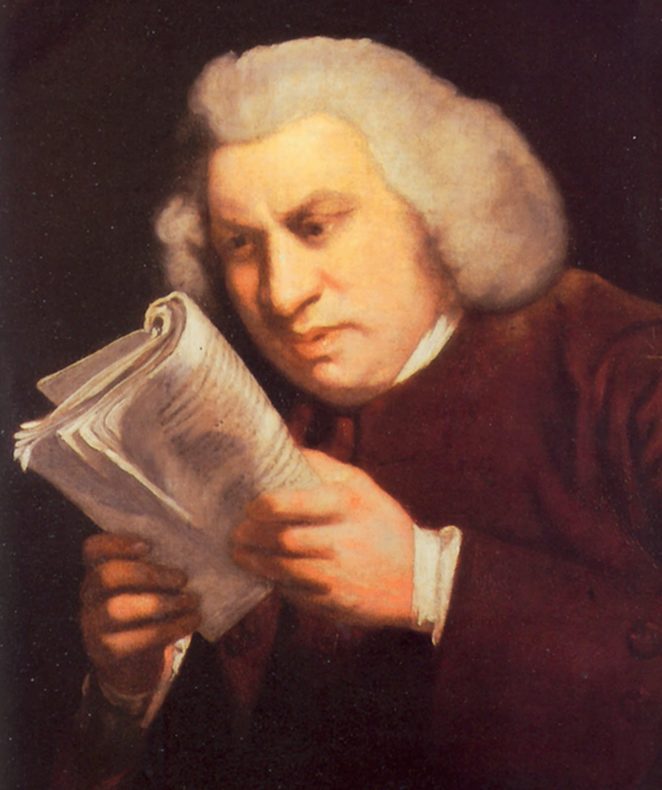Samuel Johnson, a self-confessed harmless drudge, died on 13th
December 1784 at the age of 75. He had been one of the outstanding literary
figures of his age, renowned not only for his writing but his witty sayings and
put-downs, most of which were recorded by his long-time friend and travelling
companion James Boswell.
Johnson’s output as a writer was not all that great, mostly
comprising essays and criticism in his journals “The Rambler” and “The Idler”.
He wrote some notable poems, one novel (Rasselas – written in haste to raise
money to pay for his mother’s funeral), and a travelogue describing the tour of
Scotland that he undertook with Boswell.
However, Johnson’s major achievement was the composition of
his “Dictionary of the English Language”, a monumental work that contained
40,000 entries, all of them produced by Johnson himself. Many of the entries
contained comments and asides that would not be allowed in a modern dictionary
and show evidence of humour. These include his definition of “lexicographer” as
“a maker of dictionaries; a harmless drudge”.
Johnson is often referred to as “Doctor Johnson”, but his
formal education was limited (he had had to abandon his studies at Oxford
University due to lack of funds) and the doctorate was an honorary one from
Trinity College Dublin.
Many of the sayings attributed to Samuel Johnson have
reached us via James Boswell, who wrote a memorable “Life of Samuel Johnson” as
well as his own “Journal of a Tour to the Hebrides”. These include “No man but
a blockhead ever wrote, except for money”, “When a man is tired of London he is
tired of life” and “Patriotism is the last refuge of a scoundrel”.
© John Welford

